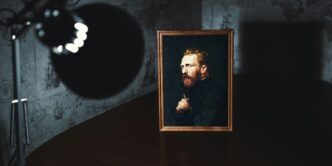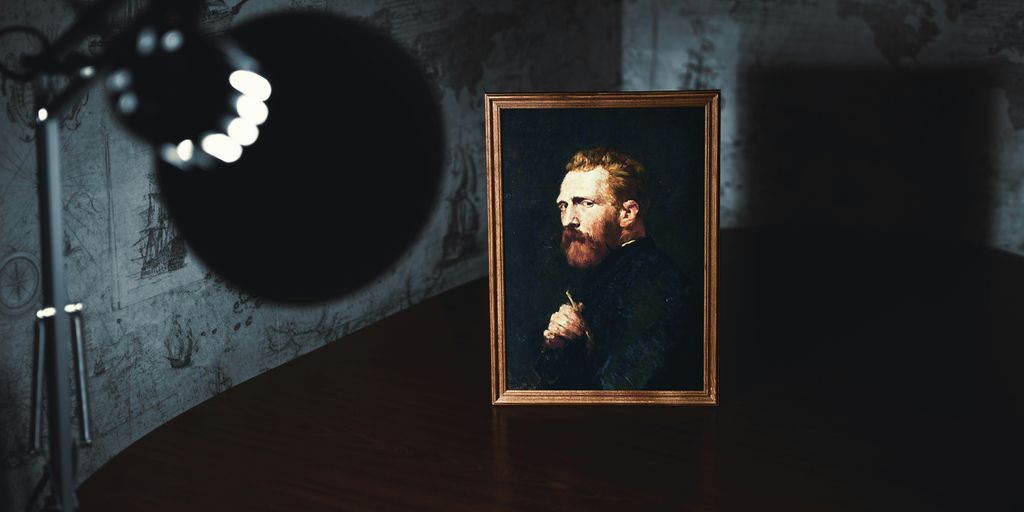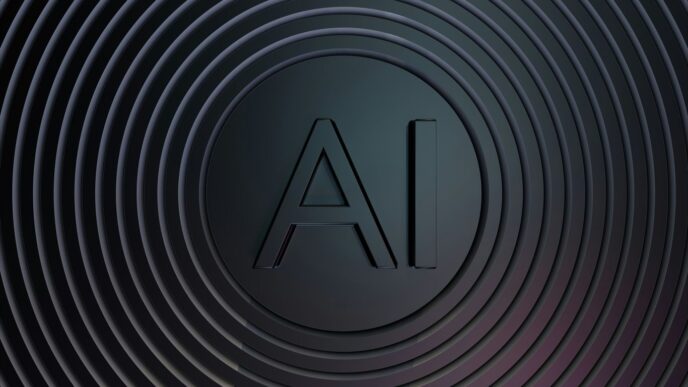Albert Einstein, a name synonymous with genius, didn’t just change how we see the universe; he also had a lot to say about how we think and create. His ideas go beyond just science, touching on imagination, curiosity, and the messy, wonderful process of making something new. Looking at his thoughts can really help us understand our own creative sparks. Let’s check out some of his best einstein quotes about creativity.
Key Takeaways
- Imagination is more important than knowledge; it’s what lets us explore beyond what we already know.
- Being passionately curious is a bigger deal than having special talents; it drives us to learn and grow.
- Mistakes are part of trying new things, not a sign of failure, but a step toward progress.
- Creativity is basically intelligence having fun, making complex things simple.
- You never really fail unless you stop trying; persistence is key to overcoming challenges.
Imagination: The Engine of Genius
Albert Einstein really hit the nail on the head when he said, "Imagination is more important than knowledge. For knowledge is limited, whereas imagination embraces the entire world." It’s a pretty powerful statement, right? It suggests that while knowing stuff is good, being able to dream up new things, to see beyond what’s already there, is what truly drives progress. Think about it – every invention, every great idea, started as a flicker in someone’s imagination before it became a reality.
Imagination Over Knowledge
Einstein wasn’t downplaying the importance of learning, not at all. He was a scientist, after all! But he saw knowledge as a foundation, a set of tools. Imagination, on the other hand, is what lets you build anything you want with those tools, or even invent new tools altogether. It’s the spark that ignites discovery. Without imagination, knowledge just sits there, static. It’s the ability to connect dots that aren’t obviously connected, to ask "what if?" that really moves us forward. It’s a key part of Einstein’s wisdom.
The Boundless Realm of Imagination
Unlike knowledge, which is confined by what we’ve already learned or discovered, imagination has no limits. It can travel anywhere, explore any concept, and create any scenario. This is where true innovation happens. It’s about not being afraid to think outside the box, or even to realize that the box doesn’t really exist. It’s in this limitless space that we can truly explore possibilities and come up with solutions that no one has considered before.
Imagination as the True Sign of Intelligence
Einstein famously suggested that the real measure of intelligence isn’t how much you know, but how much you can imagine. This is a fascinating idea. It means that someone who can creatively solve a problem, even with limited knowledge, might be considered more intelligent than someone who simply recalls facts. It’s about the ability to adapt, to create, and to see things from new angles. This perspective really makes you think about what intelligence truly means.
Creativity Fueled by Curiosity

Einstein really thought curiosity was a big deal. He wasn’t just some genius who knew a lot; he was someone who never stopped asking ‘why?’ or ‘what if?’. It’s like he saw the world as this giant puzzle, and his curiosity was the tool he used to pick up all the pieces. He believed that being passionate about learning, rather than just being naturally gifted, was the real key. It’s a good reminder that we don’t have to be born with some special talent to be creative. We just need to keep that spark of wanting to know more alive.
Passionately Curious, Not Specially Talented
Einstein himself said, "I have no special talent. I am only passionately curious." This quote really cuts through the idea that creativity is only for a select few. It suggests that the drive to explore, to question, and to learn is far more important than any innate ability. Think about it – how many times have you seen something and wondered how it worked, or why it was designed a certain way? That’s the starting point. It’s that simple desire to understand that can lead to big ideas. It’s not about being the smartest person in the room; it’s about being the most interested.
Curiosity as a Driving Force
Curiosity is what gets us moving. It’s the engine that powers our exploration and discovery. When we’re curious, we’re more likely to try new things, even if they seem a bit strange or difficult at first. This willingness to step outside our comfort zone is where real creativity happens. It’s about following those little nudges of interest, even if we don’t know where they’ll lead. That’s how unexpected connections are made, and how new solutions start to form. It’s a constant process of asking questions and seeking answers, which naturally leads to new ways of thinking.
Embracing Curiosity for Growth
So, how do we keep that curiosity going? It’s not always easy, especially when life gets busy or we hit a wall. But making an effort to stay curious can really change things. Here are a few ways to keep that spark alive:
- Ask ‘Why?’ often: Don’t just accept things as they are. Question the status quo, even in small ways.
- Explore new subjects: Read books, watch documentaries, or listen to podcasts on topics you know nothing about. You never know what might spark an idea.
- Talk to different people: Chatting with folks from various backgrounds can expose you to new perspectives and ways of thinking.
- Try something new: Whether it’s a new hobby, a different route to work, or a new recipe, breaking routine can open up your mind.
The Interplay of Logic and Imagination
Sometimes, we get so caught up in the nuts and bolts of things, right? We think that following the rules, the logical steps, is the only way to get anywhere. Einstein, though, he saw it a bit differently. He famously said, "Logic will get you from A to B. Imagination will take you everywhere." It’s like logic is the map, and imagination is the vehicle that can go off-road and discover new continents.
Think about it. Logic is great for figuring out how to build a bridge, making sure it stands up and connects two points. But it’s imagination that dreams up the bridge in the first place, maybe one that curves like a rainbow or is made of light. Without that spark, we’d just be stuck on one side of the river.
Logic’s Role in Navigation
Logic is our guide. It’s what helps us break down big problems into smaller, manageable pieces. It’s the step-by-step process that makes sure things actually work in the real world. When you’re trying to solve a puzzle, logic helps you fit the pieces together based on their shape and color. It’s about order and understanding how things connect in a predictable way.
Imagination’s Power to Transcend
But imagination? That’s where the magic happens. It’s not bound by what already exists. It lets us ask "what if?" and explore possibilities that logic might dismiss as impossible. It’s the force that lets us see beyond the current situation and envision something entirely new. It’s about breaking free from the ordinary and exploring the unknown.
Where Logic Ends, Imagination Begins
Einstein really hit the nail on the head here. Logic gets us to a certain point, a solid foundation. But to truly innovate, to create something groundbreaking, we need to go beyond that. We need to let our imagination run wild, to explore those unconventional ideas that logic might not immediately support. It’s in that space, where the predictable meets the unexpected, that real genius often emerges.
Embracing Failure in the Creative Process
It’s easy to think that creative work means getting everything right the first time, but that’s just not how it works. Einstein himself understood that messing up is part of the deal. You can’t really invent something new without trying things that don’t pan out. It’s like learning to ride a bike; you’re going to fall a few times before you get the hang of it.
Mistakes as a Byproduct of Innovation
Think about it: if you’re not making any mistakes, you’re probably not pushing yourself hard enough. True innovation means stepping into the unknown, and that inherently comes with a risk of not succeeding immediately. It’s the trial and error that leads to breakthroughs. You have to be willing to get a little messy.
Never Trying Anything New Means Never Failing
This is a big one. If your goal is to avoid failure at all costs, you’ll likely end up doing the same safe things over and over. That’s not really creating anything, is it? Einstein knew that the only way to avoid mistakes was to not try anything new. But where’s the fun or the progress in that? It’s better to try and fail than to never try at all. As he put it, the future arrives soon enough, so focus on the effort now Albert Einstein believed that failure is only a reality when one ceases to try.
Failure as a Stepping Stone
Every time something doesn’t work out, it’s not an endpoint. It’s information. You learn what doesn’t work, which brings you closer to what does work. It’s like a map; each wrong turn tells you where not to go next time. So, don’t get discouraged by setbacks. See them as necessary steps on the path to your creative goal. It’s all part of the process.
The Essence of Creative Intelligence
Einstein really thought about what makes someone creative. It wasn’t just about knowing a lot of facts. He believed that true intelligence was about having fun with ideas, making complicated things simple, and cutting out what wasn’t needed. It’s like being a kid again, but with all the knowledge you’ve gathered over the years.
Creativity as Intelligence Having Fun
Think about it: when you’re really into something, not because you have to be, but because it’s just plain interesting, that’s when the good stuff happens. Einstein saw this playful side as a key part of being smart. It’s when your brain isn’t bogged down by rules or expectations, just exploring possibilities. It’s like your mind is on a playground, not in a classroom.
Making Complexity Simple
This is a big one. Anyone can make something complicated, right? The real skill, the real intelligence, is taking something that seems impossible to understand and breaking it down so anyone can grasp it. It’s about finding the core idea and presenting it clearly. Think about how Einstein explained relativity – it was complex, but his explanations made it accessible.
The Art of Eliminating the Unnecessary
This ties into making things simple. It’s about getting rid of all the extra noise, the stuff that doesn’t really matter. When you can strip away the fluff and get to the heart of the matter, you’re showing a deep understanding. It’s like cleaning up a messy room; once it’s tidy, you can actually see what’s important. This focus helps you see the real picture and communicate it effectively.
Learning from Nature’s Wisdom
Einstein really seemed to think nature was a big deal when it came to figuring things out. He famously said, "Look deep into nature, and then you will understand everything better." It’s like he saw the whole universe, with all its complicated stuff, as a kind of teacher.
He wasn’t just saying "go for a walk in the park." He meant really paying attention to how things work, from the smallest bug to the biggest star. It’s about noticing the patterns, the cycles, and the way everything seems to fit together, even when it looks chaotic.
Nature as a Profound Teacher
Einstein saw nature as this incredible source of wisdom. It’s not like a textbook you can just read and put away. Nature is always happening, always changing, and always showing us how things are done. Think about how a seed grows into a tree, or how water always finds its way downhill. These aren’t just random events; they’re lessons in persistence, adaptation, and following natural laws. He believed that by observing these processes closely, we could get a handle on bigger ideas about life and the universe.
Understanding Everything Through Nature
It sounds a bit grand, doesn’t it? "Understand everything." But Einstein wasn’t talking about memorizing facts. He was talking about grasping the underlying principles. When you watch how a bird flies, or how a river carves its path, you start to see universal rules at play. These rules apply to physics, sure, but maybe also to how we should live our lives, how societies should function, or how ideas grow. It’s about finding the connections between the small, observable things and the big, abstract concepts.
Nature’s Patterns and Universal Truths
Einstein was a big believer that nature holds the keys to universal truths. He saw mathematical patterns in nature that seemed to describe everything. It’s like nature has its own language, and if you can learn to read it, you can figure out a lot about how reality works. This isn’t just about science; it’s about a way of thinking. It’s about looking for order in what seems like disorder and trusting that there are fundamental principles guiding everything. He thought that by studying nature, we could get closer to understanding the fundamental laws of the universe.
Perseverance and the Creative Journey
Sometimes, the most brilliant ideas don’t just pop into your head fully formed. They need a bit of pushing, a lot of trying, and definitely some sticking with it. Einstein himself understood that the path to discovery isn’t always a straight line. It’s more like a winding road with plenty of unexpected turns. You have to keep moving forward, even when things get tough or confusing.
Think about it:
- The journey of creation often involves hitting walls. It’s easy to get discouraged when your initial attempts don’t pan out. But that’s precisely when you need to dig in.
- Every setback is a chance to learn. What didn’t work? Why? Answering these questions helps you adjust your approach.
- True progress comes from not giving up. It’s about the persistence to keep refining, rethinking, and trying again until you find a way through.
Einstein’s own work wasn’t a series of instant successes. It involved years of thought, calculation, and revision. He knew that the real breakthroughs often come after you’ve pushed past the point where you felt like quitting. It’s this sustained effort, this refusal to be defeated by difficulty, that truly defines the creative journey. You can’t wait for inspiration; sometimes you have to go after it with a club, as Jack London put it. This means showing up, doing the work, and trusting that your continued effort will eventually lead somewhere significant. It’s about the long game, not just the quick win. This perspective is rooted in his own journey of learning skills, overcoming frustrations and setbacks, and eventually becoming a professional artist. He encourages the development of individual gifts into talents and abilities, fostering creativity.
Wrapping Up Our Thoughts on Einstein’s Creativity
So, we’ve looked at what Einstein had to say about being creative. It’s pretty clear he thought imagination was a big deal, way more than just knowing stuff. He also seemed to think that messing up is part of the process, and that staying curious is super important. It’s kind of like he’s telling us to not be afraid to try new things and to keep our minds open. His ideas aren’t just for scientists; they’re for anyone trying to come up with something new, whether it’s for work or just a hobby. It’s a good reminder that a little bit of wonder and a willingness to learn can go a long way.
Frequently Asked Questions
Why did Einstein think imagination was more important than knowledge?
Einstein believed that imagining new things is more important than just knowing facts. He thought our imagination could take us anywhere, while knowledge is limited to what we already know. So, using your imagination helps you come up with new ideas and understand the world better.
What did Einstein say about curiosity versus talent?
Einstein felt that being curious and wanting to learn is what really makes someone smart, not just having special talents. He was very curious about everything and that’s what drove him to explore and discover new things.
How did Einstein view mistakes in the creative process?
Einstein saw mistakes as a normal part of trying new things. He believed that if you never make a mistake, it means you’re not trying anything different or new. So, making mistakes is actually a good sign that you’re learning and growing.
What did Einstein mean by ‘Creativity is intelligence having fun’?
He thought that creativity is like intelligence having fun. It’s about making complicated things simple and easy to understand. This shows that being creative isn’t just about being smart, but also about enjoying the process.
What did Einstein learn from nature?
Einstein believed that nature is a great teacher. By looking closely at nature, you can understand many things about the world and how it works. Nature’s patterns and how things happen can teach us a lot.
What was Einstein’s message about not giving up?
Einstein’s advice was that you never truly fail unless you give up. Even when things get tough, you should keep trying. Every step you take, even after a setback, is important for moving forward.










